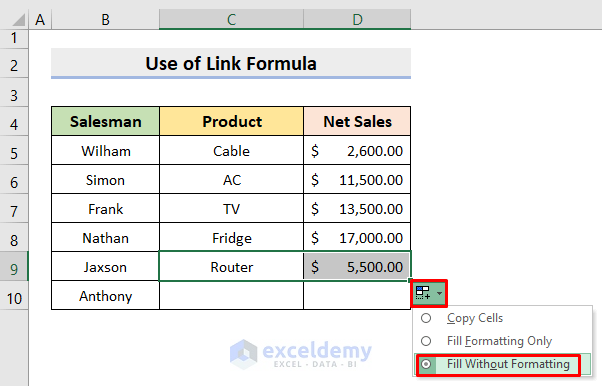Effortlessly Link Excel Sheets to PowerPoint 2013 Presentations

Mastering the art of linking Excel sheets to PowerPoint 2013 presentations can significantly enhance your productivity and presentation quality. Whether you're a business professional, educator, or student, this comprehensive guide will teach you how to seamlessly integrate data, charts, and tables from Excel into your PowerPoint slides.
Benefits of Linking Excel and PowerPoint

- Real-Time Updates: Any changes in your Excel data reflect instantly in your presentation.
- Professional Presentation: Elevate your slides with professional-looking charts and tables.
- Efficiency: Save time by avoiding manual data copying or re-creation of charts and tables.
Preparing Your Excel Data for Linking

Before we dive into the linking process, it's essential to ensure your Excel data is prepared:
- Data Organization: Arrange your data logically to facilitate linking and updating.
- Formatting: Ensure that charts and tables are formatted correctly for presentation.
- Save as XLSX: Link to an XLSX file to maintain data integrity.
Step-by-Step Guide to Link Excel to PowerPoint

Open Both Excel and PowerPoint

Begin by opening both your Excel workbook and PowerPoint presentation. It’s helpful to have them side by side for easier navigation.
Select and Copy Data in Excel

Choose the data, chart, or table you wish to link:
- Select the entire range of data or chart.
- Right-click and choose ‘Copy’ or press Ctrl + C.
Insert the Data into PowerPoint

Navigate to your PowerPoint slide:
- Click where you want to place the data or chart.
- Go to the ‘Home’ tab > ‘Paste’ dropdown > ‘Paste Special’.
- Choose ‘Paste Link’ from the list, and select ‘Microsoft Excel Worksheet Object’.
Verifying and Formatting the Linked Data

Now that your data is linked:
- Verify the data appears correctly on your slide.
- Adjust the size or style to fit the presentation theme.
Automate Updates

To ensure your data updates automatically:
- Link to the specific worksheet or range within your Excel file.
- Set up automatic updates for charts and tables in PowerPoint.
Managing Linked Data and Troubleshooting

Here are some tips for maintaining and troubleshooting your linked data:
- Source Workbook: Always keep the source Excel workbook in the same folder as your PowerPoint presentation to prevent broken links.
- Object Properties: Access the object’s properties to modify link settings or update sources.
- Update Method: Choose either automatic or manual updates in PowerPoint to manage when changes appear on your slides.
Advanced Techniques

Explore these advanced features for even more flexibility:
- Dynamic Ranges: Use named ranges to dynamically update data without resizing charts or tables.
- Macros: Automate linking processes with VBA to streamline your workflow.
Conclusion

By following these steps and tips, you now have the tools to create dynamic, real-time linked presentations. Integrating Excel with PowerPoint not only improves the quality and professionalism of your presentations but also saves time and ensures accuracy. The key to a seamless experience is proper data preparation, choosing the correct link options, and understanding how to manage these links effectively.
Why aren’t my linked Excel charts updating in PowerPoint?

+
Check if the Excel file is in the same folder as the PowerPoint presentation, ensure your data source hasn’t changed, and make sure that automatic updates are enabled.
Can I link multiple Excel files to one PowerPoint presentation?

+
Yes, you can link various Excel files to your presentation. Make sure each file is accessible and the linked objects are updated regularly.
What should I do if my PowerPoint presentation becomes too large due to linked data?

+
Consider using placeholders or linking only the data necessary for the presentation. You might also choose to use PowerPoint’s “Insert Chart” feature to create charts in PowerPoint and update them manually from Excel.
How can I make sure that linked objects in PowerPoint are secure?

+
Always link to a file on your local network or a secured location. Be cautious with links to external drives or cloud storage to protect data integrity and confidentiality.